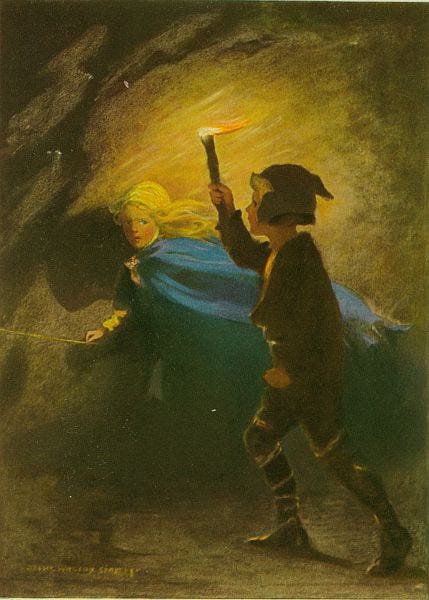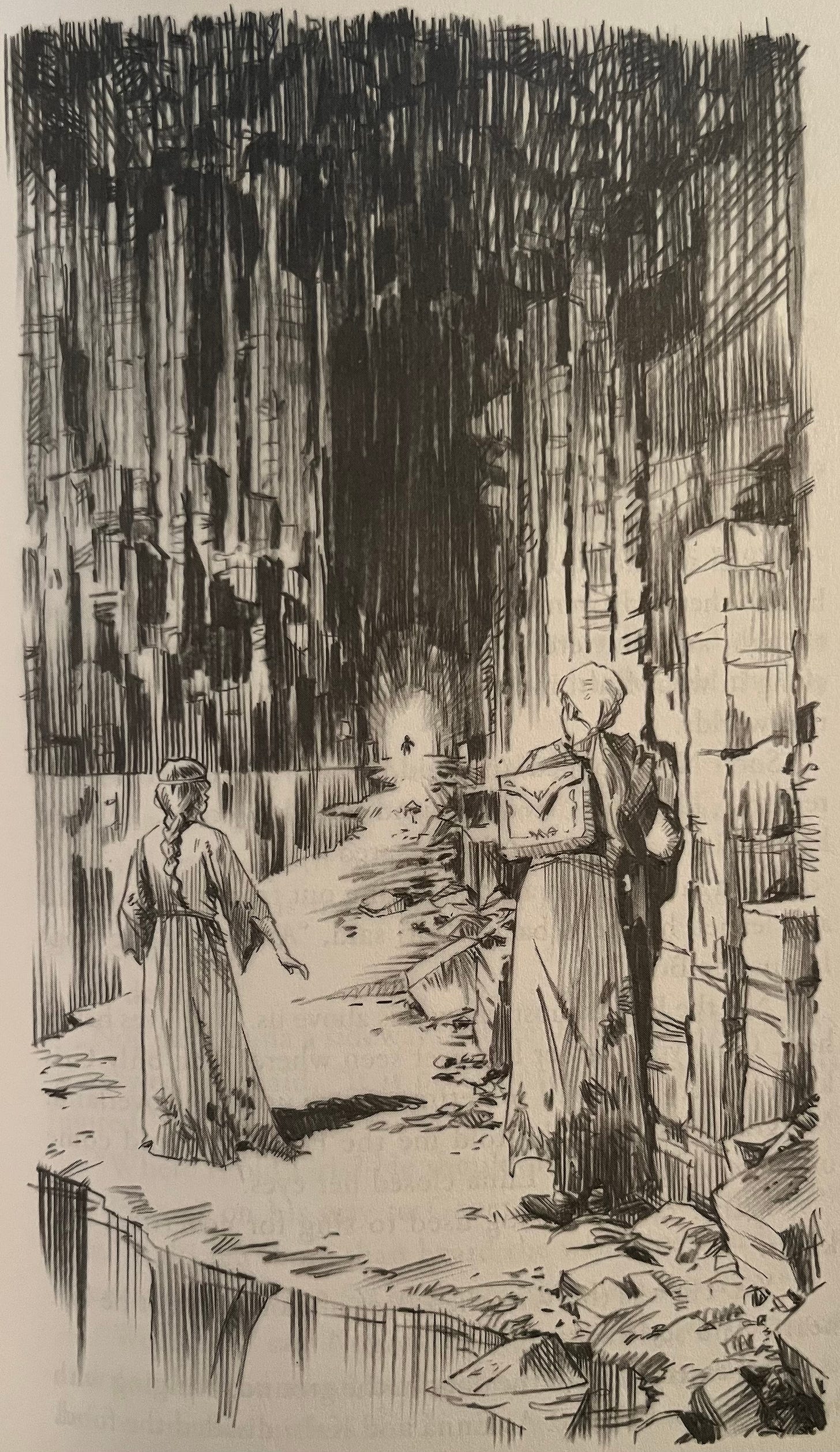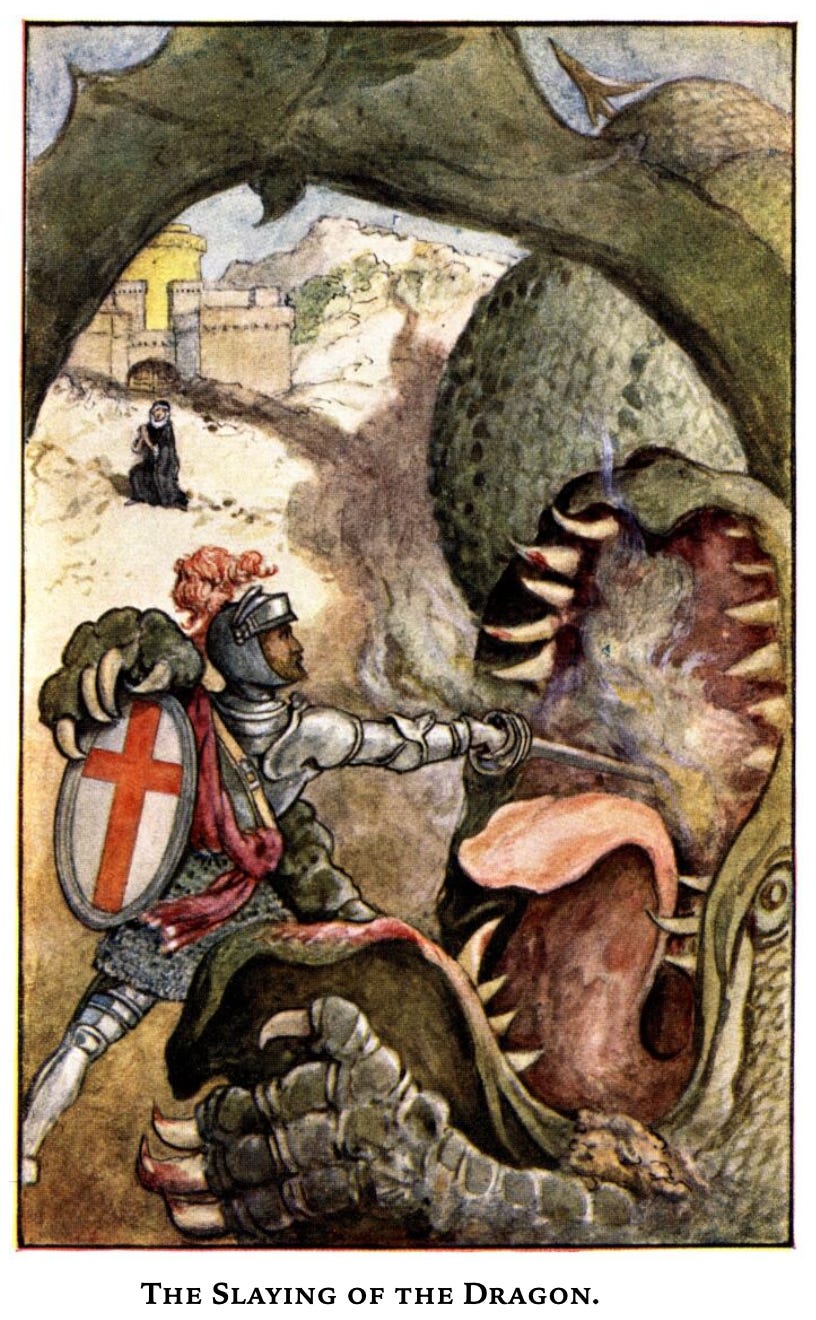The Need for Fantasy (and Its Magic and Mystery)
Guest article by author Dawn L. Watkins
Note: Our interview with Dawn was such a delight and she graciously agreed to expand upon her comment of Magic and Mystery. We hope you enjoy it!
(Any links are affiliate links.)
Fantasy is defined as any tale including events that can contradict the natural laws of our world. However, good fantasy does not contradict other laws, such as the value of virtue and the absoluteness of Truth. And it always has important business to get on with.
One of the duties of good fantasy is to remove life’s problems from their normal setting and thereby make their causes and solutions easier to recognize and remember. When the reader finishes a good fantasy story and goes back about his ordinary life, he has with him some increased understanding of sound principles by which to make choices and judgments. C. S. Lewis has said about fantasy in “On Three Ways of Writing for Children”: “It is accused of giving children a false impression of the world they live in. But I think no literature that children could read gives them less of a false impression.” Indeed, it was George MacDonald’s Phantastes that set Lewis on the right path. Lewis wrote in his preface to George MacDonald: An Anthology that what MacDonald’s work “actually did to me was to convert . . . my imagination.”
Writers like MacDonald and Lewis use their converted imaginations to reinforce Christian truths. In their works, the reader enters a world far different from his own, where he encounters treachery and deception and fear—as well as great compassion, Truth, and courage. He learns there a Christian worldview; he learns that authority must reside in powers higher than himself, and that when power is wrested from authority, disaster always results.
In fantasy, things happen that seem improbable and extraordinary. We often call that action magic. When such action comes from outside the character’s rightful control and for his good, magic can be seen as symbolizing grace. Vigen Guroian, author of Tending the Heart of Virtue, makes this point in relation to fairy tales. But when the source of the magic is a character’s meddling with that which is not his to handle, magic becomes physical sleight of hand or mental manipulation or, worse, abuse of power. Then the reader is duped, left with a false view of reality, a sense that he can control life. Tolkien’s Gandalf acts within his appropriate sphere for the good of his companions. Saruman does not; he believes that he can make the world conform to his will by misusing his power to reach beyond his rightful place. In the end of that story, Gandalf is honored and Saruman is destroyed, reinforcing that power is to be used with humility and respect.
Even giving room for some magic to be read as grace, much happens in fantasy that is inexplicable, often leading the reader to search for causes. But are there not many things quite real that are beyond our ken? Those mysteries are good and necessary for us, allowing us to apprehend some truths we cannot fully comprehend and to take from those encounters what we can in the moment. In Arrow, Trave has an experience he cannot comprehend. But when he lets go of all his assumptions, he can take what he most needs from the event. When he recounts for his son the event and the message he took from it, the boy only wants to have the mechanics explained to him and so misses the meaning. Later, Trave has occasion to act on his new ability to apprehend only and to demonstrate for his son how at times one must be content to know without fully knowing. He has now matured to the place that he can become High King of the Alliance.
Beyond the deep meanings to be found in fantasy, it is one of the best means of helping children learn literary skills that will let them recognize good writing of any kind. Set apart from the ordinary world, elements in fantasy stand out in bold relief—a wax mask is much more clearly a symbol of deceit than, say, a shifty look. Learning to recognize and interpret such symbols will help young people understand that whatever they read is sending a message to be evaluated.
They also learn to delve into the craft of good writing, to appreciate foreshadowing, parallels and contrasts, pacing, and theme, to name a few elements. Well-crafted fantasy can often engage even reluctant students because children naturally respond to that which delights. Entertainment is a good teaching tool, so long as there is more than simple entertainment to be had when all is said and done. A story carefully written will delight and its lessons that might only be apprehended at the time may blossom into comprehension and insight in later years.
Young people who are presented with good and delightful reading of many kinds and who are taught to recognize the elements that make a book good will not be satisfied with lesser books or be vulnerable to shabby ideas for lack of experience with the truly good ones. They will become connoisseurs of excellence and will be wise and thoughtful students of story all their lives.
Find and purchase Dawn’s books here on Dawn’s author page on Amazon.
Our podcast episode covered her fantasy Gadallan Trilogy:







